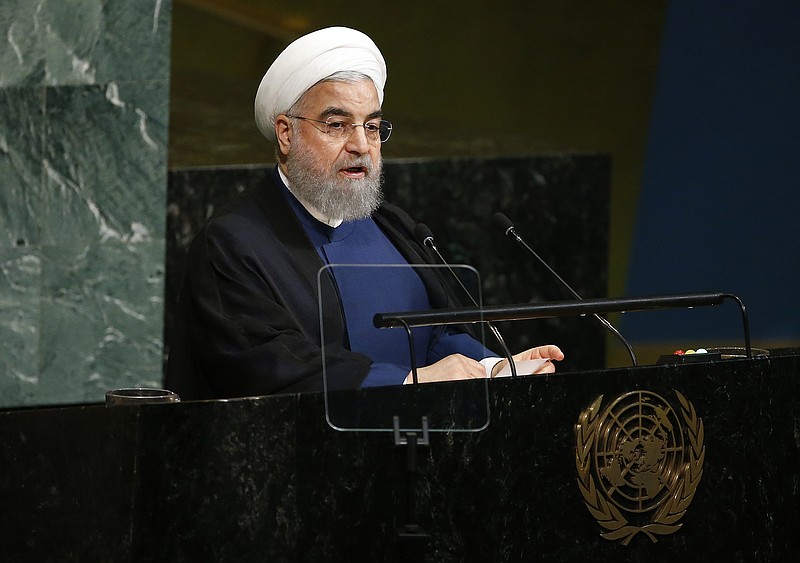UNITED NATIONS (AP) - Iran's president warned Wednesday that his country will "respond decisively" to any violation of the agreement that reins in its nuclear program and called U.S. President Donald Trump's "ignorant, absurd and hateful rhetoric" about Iran unfit for the United Nations.
In remarks clearly directed at Trump's 8-month-old administration, Iranian leader Hassan Rouhani told the U.N. General Assembly: "It will be a great pity if this agreement were to be destroyed by rogue newcomers to the world of politics."
"The world will have lost a great opportunity, but such unfortunate behavior will never impede Iran's course of progress and advancement," Rouhani said.
His speech came a day after Trump, in his own address to the assembly, called the U.N.-backed Iran nuclear deal "an embarrassment" to the United States.
And he hinted his administration, which has accused Tehran of aiding terrorism in the Middle East, could soon declare Iran out of compliance with the deal. That could unravel it.
Rouhani retorted "the ignorant, absurd and hateful rhetoric, filled with ridiculously baseless allegations, that was uttered before this august body yesterday" didn't befit an organization established to promote peace and respect among nations.
In a later tweet, he made clear the comments were directed at Trump.
The Iranian president said his country would not be the first to breach the nuclear agreement, "but it will respond decisively to its violation by any party."
Rouhani repeatedly invoked moderation as Iran's goal and said its missiles - which have been strongly criticized by the Trump administration - "are solely defensive deterrents."
As he spoke, dozens of other nations began signing the first treaty to ban nuclear weapons, a pact spurned by nuclear powers.
Forty-two states put their names on the nuclear weapons pact within an hour after a signing ceremony opened, and more were added afterward. Guyana, the Vatican and Thailand also have already ratified the treaty.
If 50 countries ratify it, the treaty would take effect for those that did so, requiring them not to develop, test, produce, manufacture, otherwise acquire, possess or stockpile nuclear weapons "under any circumstances."
More than 120 countries approved the nuclear ban in early July over strong opposition from nuclear-armed countries and their allies, who boycotted the negotiations.
Supporters of the pact said it's time to push harder toward eliminating atomic weapons than nations have done through the nearly 50-year-old Nuclear Non-Proliferation Treaty.
"You are the states that are showing moral leadership - in a world that desperately needs moral leadership today," Beatrice Fihn, executive director of the International Campaign to Abolish Nuclear Weapons, told the countries that sign or plan to do so. She said with tensions growing between the U.S. and North Korea over the North's nuclear program, the need for the treaty is even greater.
Costa Rican President Luis Guillermo Solis called on nuclear powers "to join this date with history."
However, they said a ban on the weapons won't work.
French Foreign Minister Jean-Yves Le Drian said Monday that France refused to take part in negotiations on the treaty because it can only weaken the nuclear nonproliferation treaty. He called the nuclear ban treaty "wishful thinking" that is "close to irresponsible."

